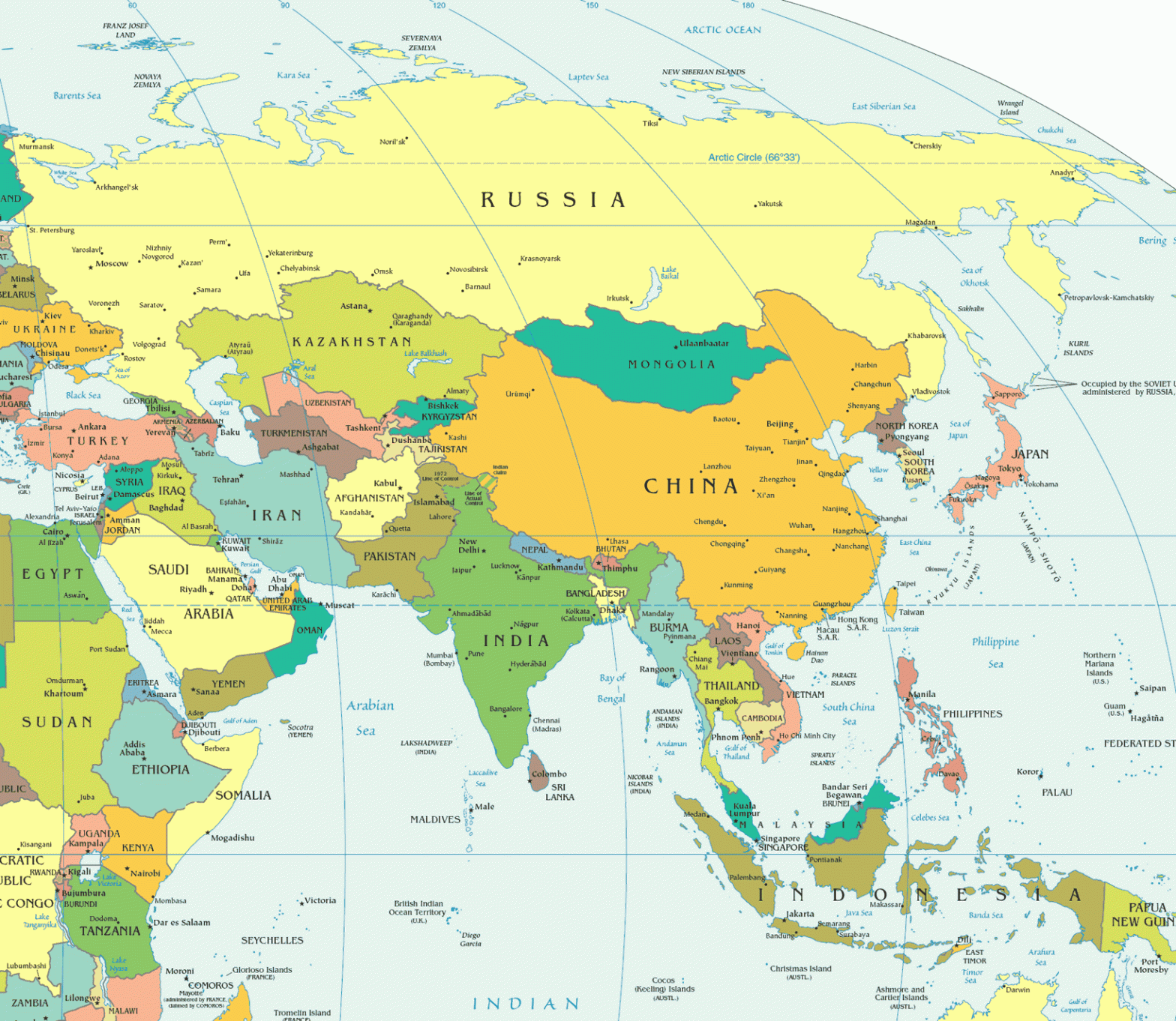Since the election of Donald Trump, there has been an unprecedented amount of media coverage and debate surrounding the Electoral College. I have not been even slightly swayed by any of these opinions and arguments. I think as a student of history having read parts of the classics like Aristotle and Adam Smith; add to that the reading biographies of influential founding fathers. A student of history knows that the founding fathers read and studied all the classics. The prevailing ideas of the day were based on the enlightenment movement starting in Europe and spreading throughout the world. It was truly a renaissance of ideas that transformed governments. Now we are here about 227 years of democracy later and people are suddenly up in arms about the electoral college? I want to defend the Electoral college as a necessary and proper institution in the American representative democracy. I think the term ‘representative’ is the most important word that validates the Electoral College. My opening salvo can be summarized as the blame game of the system that has worked over 200 years with approximately 56 elections taking place.
My first argument is to say that why must we blame the electoral college? Why is it not the candidates that we picked? The system is merely in place to keep the election fair and offset any disadvantages that typically plague a representative democracy. The two candidates that we’re voted in the primary to run in the presidential election, were by far the most despicable candidates in history. Both of them polarizing. One candidate had 30 years of public office experience with multiple scandals, corruption, and mistakes. The other candidate is an international businessman who went through multiple bankruptcies. He was a television reality star. During the campaign became well-known for vulgar statements about different races and the opposite sex. These unlikable candidates were the only ones who had a shot to win. So why is the electoral college the fault for electing Donald Trump? That brings me to my first argument for the Electoral college.The bad candidates has to make one wonder if it’s actually the electorate that is at fault for putting up the two worst candidates in history. We must remember that the people or the citizens of the United States are in charge of voting for the candidates in the primaries. The primaries can be rigged like the DNC did, however, in an honesty primary you would think the electorate would vote out the bad candidates? Hence, my first argument is essentially this: The founding fathers installed the electoral college because they didn’t feel that the voting populace could effectively elect the right leaders.
The original source of this argument is from the Federalist Papers. If you paid attention in history class or if you have been reading this blog you probably know about the Federalist Papers. If you don’t then please look it up. The specific number was Federalist paper 68. Federalist paper 68 was written by none other than Alexander Hamilton. In no uncertain terms, Hamilton argues that the President and Vice President should have a ‘small number of persons, selected by their fellow-citizens from the general mass, will be most likely to possess the information and discernment requisite to such complicated investigations’. The translation of that old English is that Hamilton believes its necessary that a small group would choose as a surrogates to make the final decision on the election of the President and Vice President. He even goes on to say this about who the Electoral college will made up of: “No Senator, representative or other person holding a place of trust or profit under the United States“. Hamilton believes the electoral college can prevent corruption because of these stipulations. Hamilton keeps repeating his argument and each time it gets clearer. This line that Hamilton writes at the beginning of the 8th indentation, is exactly why the Electoral college exists today.
“The process of election affords a moral certainty, that the office of President will never fall to the lot of any man who is not in an eminent degree endowed with the requisite qualifications. “
I would strongly encourage you read the whole Federalist Paper 68 because Hamilton is a master of his craft and gives a very persuasive argument.
My second argument is based on previous Supreme Court cases that have been decided in favor of the Electoral College. The last time a candidate won a popular vote and lost the electoral college vote was George W. Bush vs. Albert Gore. The case happened over a just few days in early December 2000. However, it was not the first case about the Electoral College. The issue that is typically argued in the Supreme Court is over the 14th amendment. The specific clause in this case is the equal protection clause. The equal protection clause simply protects all people under the law within its jurisdiction. This means that you can’t make law that excludes a specific type of person based on sex, religion, gender, etc;etc. The equal protection clause also includes voting laws and vote counting laws. The first case on how states count their votes and tally it up for the electoral votes was McPherson vs Blacker. In this case, Michigan’s legislature wanted to change the way it calculated it votes for the electoral college. The Supreme Court ruled that the constitution gives the power of the legislatures to choose how electors are counted based on the popular vote. The constitution says the legislatures have power to decide in the second article. It was later expanded by the 14th amendment. In the Bush vs. Gore case it was over the re-count of the vote processes by county or district in Florida. If you recall the election of 2000 was too close to call because of Florida and their ‘hanging chads’. The controversy came from the fact that recount policies were different but the court didn’t find that the equal protection clause was being broken. The reason is that the Florida legislature had let the rules vary by county and district. Granted, Supreme court cases can be overturned. However, the point here is that the laws within our constitution and amendments actually do protect us from any sort corruption or problem that is purely systematic.
My last argument is one of simple logic. I have now presented two legitimizing reasons for the Electoral College. Here’s is my third one, that also doubles as a challenge to those nay-sayers. Let’s say we want to get rid of the Electoral College because it is not perfect by any means. What would you replace it with? My third argument is simply that I truly don’t think that the citizens of the United States would like the replacement. The replacement would be a similar system to almost every European and every other democracy or republic in the world. We would have to discard our two-party system. We would have to allow multiples of candidates on the ballot . The system that we would change to is called a “single vote majority” or a “plurality vote”. This means that the candidate with the largest majority of the vote would win. Straight up. In the case of this election between Clinton and Trump, neither of them would have won. We would have to have a re-vote. There was only three candidates in every state ballot for president. Clinton had 47 percent, Trump had 46, Johnson had 3 percent and Stein had 1 percent. The other 3 percent was for Harambe or Bernie I assume. Depending on the rules, the winner would either have to have 51 percent in our current system with two main candidates. If there was more than 2 candidates, then the winner would be the person who takes the most, in that case it would be a Hillary Clinton victory. It would certainly invite a wider range of candidates. I think its pretty stupid to ask for majority vote when reality is that this specific election might have had a different outcome with a majority vote. This doesn’t mean the future elections won’t also be negative outcomes with a majority vote. If another candidate similar to Trump comes along after getting rid of the Electoral College then we are at the mercy of majority. It’s odd that many of the same people who want to get rid of the Electoral College are in the minority. (Very strange to me?)
To wrap up my post and conclude my point, I want to finish my arguments by saying that the Electoral College actually levels the playing field in every election. The electoral college makes sure that every voice is heard. The states with the higher electoral votes are more populated, like California, New York, Florida, Texas, Ohio, Pennsylvania and Virginia. The states with the lower electoral votes are less populated and it’s not surprising that there is more of them. I believe that if you think population shouldn’t matter then you probably don’t understand urbanization. America used to be a farming society and it has transitioned into a mostly urban society. The cities on each of the coasts and elsewhere hold nearly 50 percent of the United States populace.You can almost guarantee whoever the cities vote for will have a chance to win. If in the off-chance like this year and in 2000, you can get a coalition of rural states and a few swing states to change color, that is when you get a President Trump. Let’s face the facts the electoral college isn’t to blame for Trump. Remember that Trump was elected in the primary. Trump was basically allowed the majority of Republican and non-Republican voters alike to run for President. If nothing else, Trump used the electoral college to his advantage better than Hillary. I could easily argue that Hillary had an easier path to victory. All she had to do was win either Ohio or Florida plus two other states like Michigan and Pennsylvania. Her coalition of Democrat states includes two of the biggest in New York and California.
So please next time you want to blame the Electoral College, don’t blame the system that was put in place and has worked for 227 years. Look at the voters, look at yourself. People vote for the president. People are responsible for the candidates that are put up to run for office. Thank you for reading and I hope this helps people understand why the Electoral College is necessary and proper!
“Though we cannot acquiesce in the political heresy of the poet who says: For forms of government let fools contest That which is best administered is best,” yet we may safely pronounce, that the true test of a good government is its aptitude and tendency to produce a good administration.” — Alexander Hamilton, Federalist 68
Citations:
Quotes From Sources in Bold or Italics.
Hamilton, Alexander. Federalist Paper 68: Mode of Electing the President, March 14th 1788. Lillian Goldman Law Library, 2008. Link Here
Denniston, Lyle. Constitution Check: Is winner take all Electoral College Voting in trouble?, Constitution Center. January 29, 2013. Link Here
Cornell University Law: Legal Information Institute: Bush vs. Gore, Supreme Court. December, 2000 Link Here
The featured picture is the electoral map of the US for the 2016 Election. The red represents where Trump won. The blue represents where Hillary won. Trump won mostly rural areas meanwhile Hillary won mostly urban. Population does matter.





